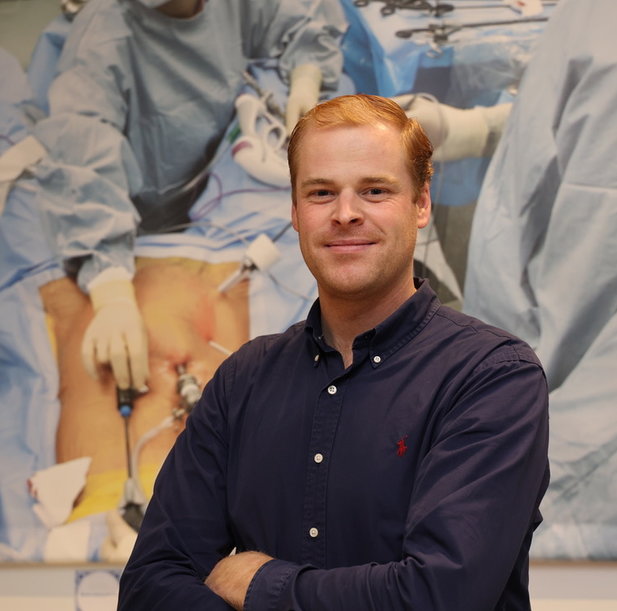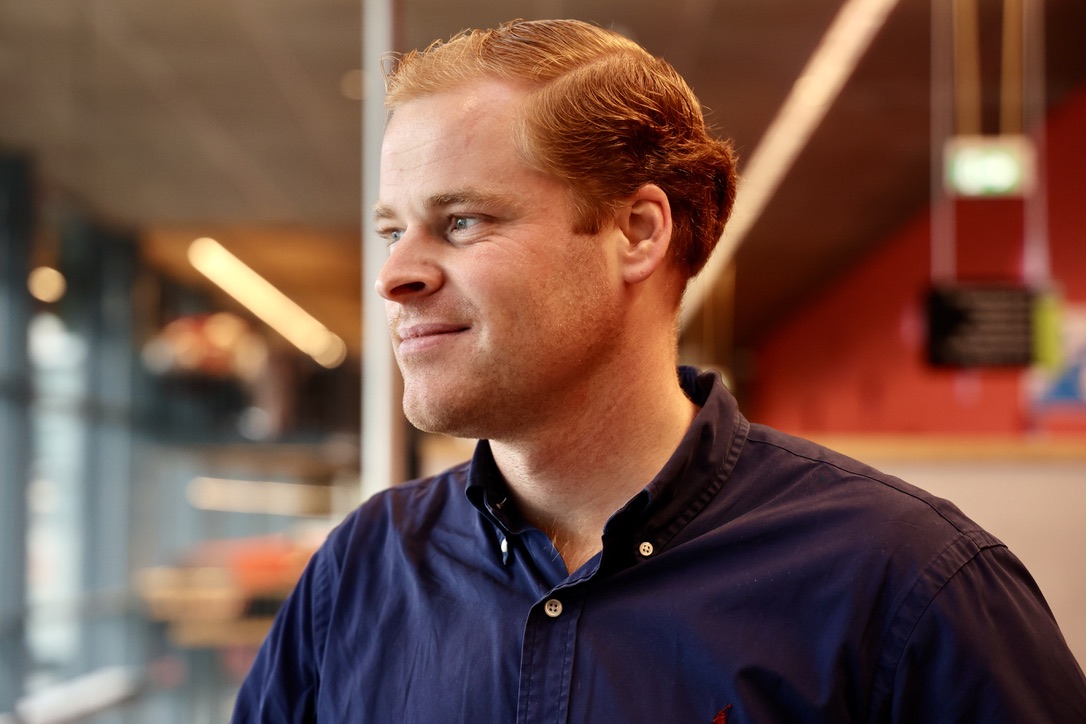Teddy Vijfvinkel
What exactly do you do at the cutting edge of technology and healthcare?
Medical technology has always fascinated me, although the technical aspect was underexposed while I was studying medicine. And that while these two worlds are affecting each other increasingly. As a doctor at the surgery department in Delft, doing research at the University of Technology seemed a logical step. This brought me into contact with my health ambassador Maarten van der Elst. He is a driver of technological development in healthcare; his focus is on putting collaboration and clinical patient safety first.
With my research, I try to intelligently understand the care processes that take place in the operating theatre and intervention room. In these processes, we use sensors such as cameras and dosimeters, in addition to the information already available from clinical systems. The aim is to predict how an operation will go. And if things don't go according to plan, how to deal with this as quickly and well as possible by giving feedback to care staff. This allows us to improve our workflow and create capacity for emergency procedures.
For example, in the catheterisation room, we look at whether the cardiologist works with two or three assistants, at how many catheter changes are needed, and at patient factors such as age or a history of cardiovascular disease. With the video cameras we will move to automated monitoring in the future. An algorithm will then process the images, annotate them and extract the important things the staff or hospital wants to know. It will no longer be necessary to store the images, which is important from a privacy point of view.
In other words, the end product is a 'tool' that allows staff to focus on the procedure without peripheral issues such as administration getting in the way. For managers it means more efficient use of the precious time of scarce staff and of that expensive operating theatre. In interventional cardiology, for example, it can also monitor the radiation exposure of healthcare personnel and provide indications in this regard.

What is your impression of the world of technology?
TU Delft is a very inspiring environment in which to look beyond the bubble of the hospital. Because we as doctors are not trained in that technology, our solutions are not always particularly creative. That is where engineers are important, but only once they have a good understanding of what the clinical problem is. For example, if an engineer uses artificial intelligence of his own accord to operate on a human being, it will not work because it does not naturally match the requirements of patient and staff. Collaboration is vitally important.
Do you have a top tip for engineers who work in the medical field, or who would like to do so?
In the technology sector there is ample room for the development of prototypes, and for improvement through trial and error. A doctor, however, doesn’t have much time for indulging in doubt, and must be able to trust the available technology implicitly. As doctors we sometimes have to switch between these two worlds for a while to ensure that an emerging technique is introduced into clinical practice the right way. And no matter how much is possible with technological advances, at the end of the day, caring for patients is a human endeavour.
